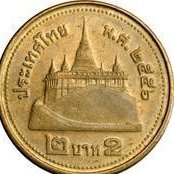Thai Police warned not to distribute copies of court’s warrant
-
Recently Browsing 0 members
- No registered users viewing this page.
Announcements
- Keep up-to-date with our Daily Newsletter - Subscribe Here
- All you need to know about Destination Thailand Visa (DTV)
- GET 10% OFF - International Health Insurance with Cigna- Flexible and tailored plans
- Enjoy our NEW daily and weekly featured Quiz !
- THAILAND LIVE - Get All the latest daily Thailand News Headlines
-
Topics
-
Latest posts...
-
377
Must Read Its Happening - Law to Tax Overseas Income Now in Progress
Yeah and same with the locals on the Thai income tax laws too...just because they are basically ignored by the police but if immigration gets involved eventually it could affect the expats here. I don't foresee any problems immediately and who knows, it may never happen in our lifetime. -
6
What was your job (profession) when you moved to Thailand
So what was YOUR profession ? -
377
Must Read Its Happening - Law to Tax Overseas Income Now in Progress
Desperately trying to get rid of the rest of us. -
377
Must Read Its Happening - Law to Tax Overseas Income Now in Progress
It depends on the tax rates... E.g. if you earned $10,000 & were taxed at 10% in AUS you would pay $1,000 however if that income was taxed at 15% in Thailand you would need to pay the additional 5% ($500). -
4
Do You Believe: Next year, and the next, will be HOTTER than 2024?
This climate stuff is baloney. What's happening is that the sun is moving closer to the earth year by year. Every so often it tries to fool us by moving back to make it colder for a few months. -
8
Thai PM's 'Mini Heart' Gesture Provokes Mixed Reactions
It actually means "Ha Ha suckers, it's our turn at the trough again for the foreseeable future!" Thanks -
43
Drug-Crazed Man Dies After Being Beaten by Mob Following Tractor Theft in Bangkok
So you feel more comfortable to stay in your Homecoutry?.....bye bye -
1
Thai doctor vows to create "Hitler Room" to gas hospital smokers
Please make that all smokers. Tobacco, e-cigarettes and weed. -
13
British Man in Pattaya Crashes Motorcycle into Sidecar, Driver Severely Injured
Try reading the article before commenting. Drunk, high on cannabis and excessive speed. -
101
Why is Trump Really Running for Office Again?
Trump loves Trump. It isn't only the left that dislike him, any reasonably educated person can see that Trump's low IQ is a danger to society in general and an embarrassment to the country. His red neck supporters love him because they can understand his 3rd grade English, his lack of knowledge is on par with their own so that makes him one of their own. He has lied and cheated all his life, he has not only refused to pay lawyers bills and county bills for his rallies but also bankrupted SME's by refusing to settle accounts for work done on his properties (yes, he loves the American worker). -
130
Thailand Grapples with Growing Number of Foreign Beggars
The sidewalks are full enough already of people actually earning a living, but I don't object to poor people begging. I have to say I don't see that many....two or three on Soi 3 Sukhumvit, who usually look to be Arabs or Indo/Pakistani. That said the stuff I want to visit and buy is usually in prosperous areas and I think the cops keep the beggars away from there. I'm sure this talk of 100,000 baht a day income is misinformation. In the UK and US there are tales of dirty legless beggars climbing into Rolls Royces at the end of a begging session. My answer is to deport any none Thai begging or else introduce a new begging visa for farangs. -
377
Must Read Its Happening - Law to Tax Overseas Income Now in Progress
I used ENGLISH only documents to obtain the LTR visa through a Thai office. I understand though that many people will have documents from other than English providers and that would cause a problem. My documentation to avoid any Thai taxes on my pension can easily be read by non-English as the number speak fo themselves. Yeah I am fluent in Thai but it wasn't necessary for my visa. -
66
How much time do you spend ironing your clothes...in Thailand?
I had a maid that did that look after cat clean house. After 27 years serving and protecting the people I got very picky of her did my clothes. Even the ex didn't try. It takes me a couple of hours takingy time watching or listening to YouTube while I iron. I find it very relaxing -
4
Do You Believe: Next year, and the next, will be HOTTER than 2024?
Same as every year, not much different. -
377
Must Read Its Happening - Law to Tax Overseas Income Now in Progress
Unfortunately not ..... as the hyper-rich and the elite in Thailand are well above the law.
-
.png.3b3332cc2256ad0edbc2fe9404feeef0.png)










Recommended Posts
Create an account or sign in to comment
You need to be a member in order to leave a comment
Create an account
Sign up for a new account in our community. It's easy!
Register a new accountSign in
Already have an account? Sign in here.
Sign In Now